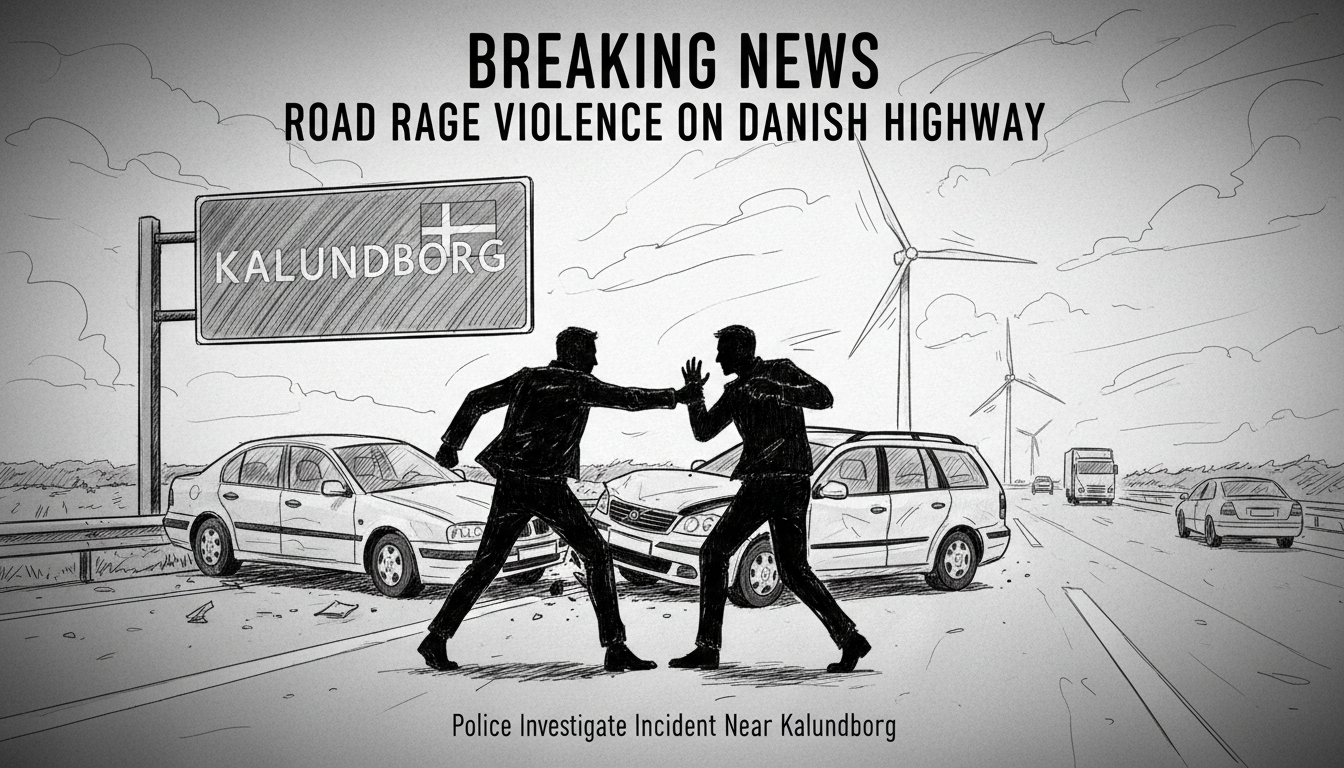A routine drive turned violent Thursday afternoon on Gørlev Landevej near Kalundborg. A 24-year-old motorist found himself in a dangerous confrontation after what began as minor traffic tensions.
The incident started when the driver ahead began behaving erratically. According to the younger man's police statement, the leading vehicle made several unnecessary brake checks. The driver slammed the brakes suddenly despite no obstacles in the road.
This abrupt stop caused the 24-year-old to rear-end the other vehicle. The situation then escalated dramatically beyond a simple traffic accident.
The other driver exited his car and confronted the young man. He demanded to know what he was doing before punching him twice in the face. Police documented the assault in their daily report.
The alleged attacker then fled the scene in his vehicle. Authorities received the assault report at 5:48 PM on Thursday.
This incident highlights growing concerns about road rage in Denmark. Similar confrontations have occurred across the country in recent months. The Nordic countries typically report lower rates of traffic violence than other regions.
Danish traffic safety experts note that while physical violence remains rare, aggressive driving behaviors are increasing. The psychological pressure of modern driving conditions may contribute to these outbursts. Denmark's generally calm driving culture makes such incidents particularly shocking.
What consequences might the fleeing driver face? Danish law treats traffic assaults seriously. The combination of reckless driving, assault, and leaving the scene could result in significant penalties. Police are likely reviewing traffic cameras and witness statements to identify the suspect.
For international readers, it's important to understand Denmark's legal approach to traffic incidents. The country maintains strict liability rules in many accident scenarios. However, physical violence represents a separate criminal matter beyond traffic violations.
The Kalundborg area where this occurred is typically peaceful. This type of violence stands out in regional crime statistics. Local authorities will likely increase patrols in response to this alarming event.
Road rage incidents can happen anywhere, but Denmark's generally high social trust makes them particularly concerning. The violation of expected public behavior disturbs the social fabric that Scandinavians value highly. This case serves as a reminder that traffic conflicts require calm resolution rather than violent escalation.

